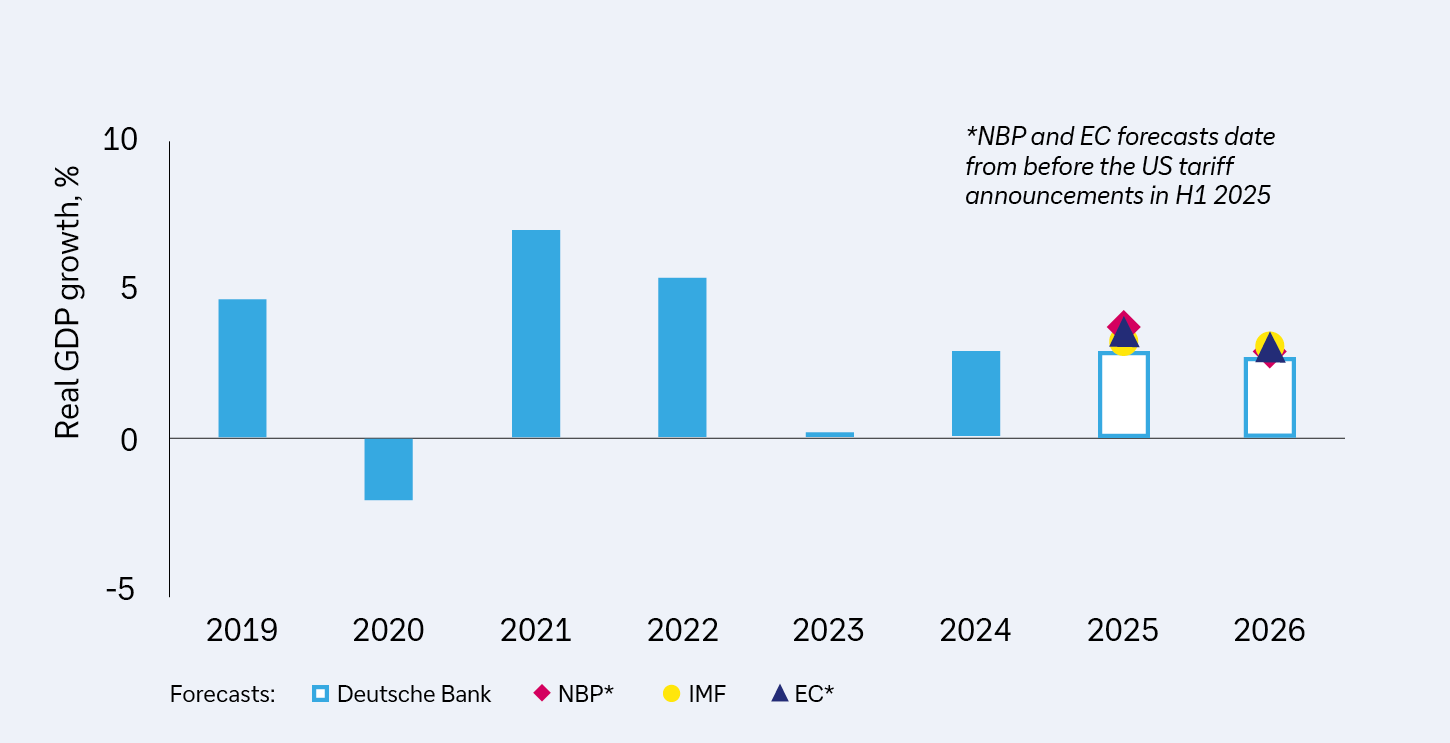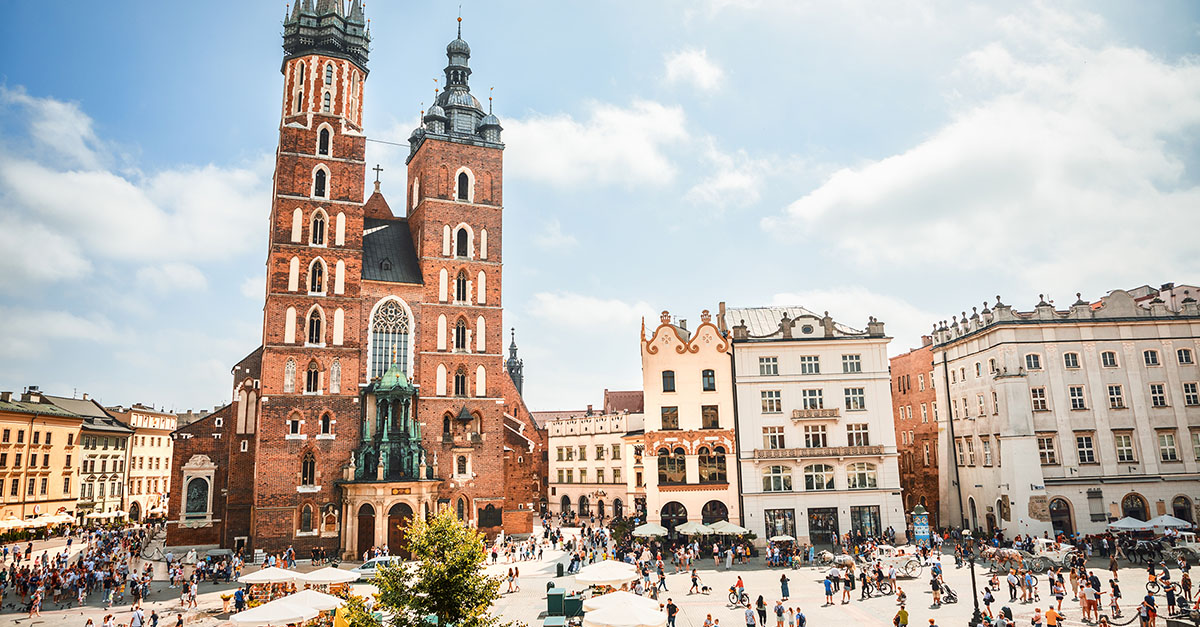Since its transformation into a market economy in 1989, Poland has emerged as an exporting beacon of Central Europe. Sharing a border with seven countries – including Germany, Russia and Ukraine – and several major seaports along its Baltic Sea coastline, it is highly integrated into global supply chains, with its strong distribution networks making it one of the most popular destinations in Europe for foreign direct investment (FDI).
Now a parliamentary republic with a population of more than 38 million, Poland is the sixth-largest economy in the EU, with GDP of US$908bn and 2.9% GDP growth recorded in 2024 (see Figure 1).

Figure 1: Poland’s GDP growth
Source: Deutsche Bank Research
Having joined the EU on 1 May 2004, Poland has experienced dynamic economic growth, bringing its level of development significantly closer to the EU average, and has positioned itself as an ideal base for companies looking to establish themselves in Europe, enabling efficient trade and logistics across the continent. Private consumption is the key driver of the Polish economy, supported by wage growth, falling inflation and increased social transfers. Investments, both public and private, also contribute to this growth, including those implemented under the National Recovery and Resilience Plan.1 Long-term challenges for Poland include a shrinking working-age population, relatively low innovation in the economy, and the need for green and digital transformation. The effective use of EU funds and increased spending on research and development remain very important.
CEO Tomasz Kowalski heads Deutsche Bank Polska, and makes the point that the Polish Presidency of the Council of the European Union (Poland holds the office for the first six months of 2025) is “taking steps to strengthen the competitiveness of the EU economy, focusing on integration of the internal market, simplification of regulation and support for geopolitical stability in the region”. He adds, “The Polish Presidency has constantly emphasised the importance of – and fought for – support for Ukraine. Accordingly, the topic of Ukraine is on the agenda of every Economic and Financial Affairs Council meeting.” Poland has significant trading ties with Ukraine and is its second largest trading partner after China.
